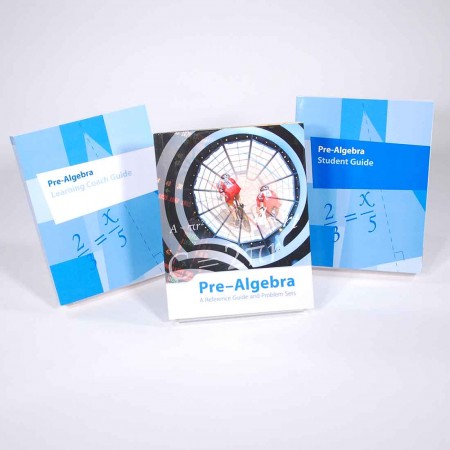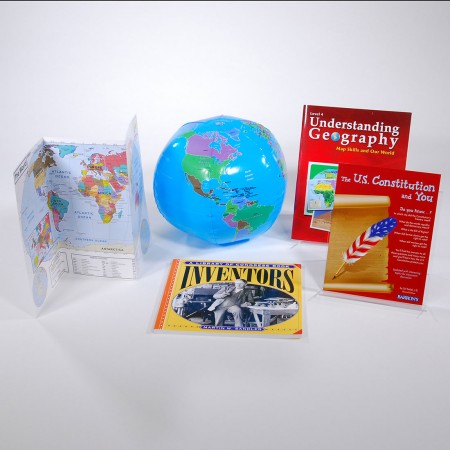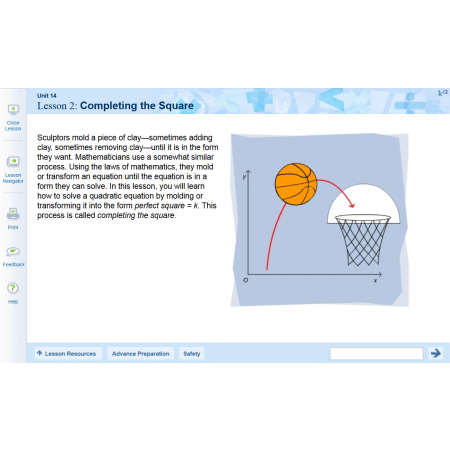Details
Course Overview
This Physical Science course presents the fundamentals of physics and chemistry. Students explore the amazing universe we live in, including motion,
energy, the nature of matter and atoms, how chemicals mix and react, and the forces that hold the universe together.
Among other subjects, students study:
-
Structure of atoms
-
Elements and the Periodic Table
-
Chemical reactions
-
Forces, including gravitational, motion, acceleration, and mass
-
Energy, including light, thermal, electricity, and magnetism
Course Outline
Introduction to Physical Science
What does physical science cover? Everything physical, which covers quite a lot. Begin your journey into physical science by learning about measurements
and how to do proper lab procedures. You will also be introduced to lessons that will prepare you for standardized tests in science.
-
Introduction to Physical Science
-
Physical Systems
-
Measurement and the International System
-
Laboratory: Measured Steps
-
Laboratory: Density
-
Working with Model Problems
-
Model Problems
Matter
Have you ever played solitaire, where you arrange cards horizontally and vertically looking for connections? Russian scientist Dmitri Mendeleev did, and he
was inspired to create the pattern of the Periodic Table. This pattern displayed in the periodic table helps us understand atoms, chemical reactions,
chemical formulas, chemical compounds, atomic mass, and other concepts covered in this unit.
-
Atoms
-
Atomic and Mass Numbers
-
Elements and the Periodic Table
-
Design of the Periodic Table
-
Molecules
-
Properties of Matter
-
States of Matter
-
Physical and Chemical Changes
Chemistry
When you see the word chemistry, you may have an image of someone in a lab wearing goggles pouring liquids from one beaker to another. But
chemistry surrounds you every day. Cars are built with chemicals and run on chemical fuel. Chemicals make up the clothes you wear and the food you eat. You
breathe chemicals, your computer and radio are composed of chemicals, and our world today is dependent on chemicals.
-
Chemical Bonding
-
Chemical Reactions
-
Chemical Formulas
-
Laboratory: Testing and Producing Gases
-
Rates of Chemical Reactions
-
Chemical Equations
-
Laboratory: Dissolving Metals
-
Mixtures
-
Separating Mixtures
-
Solutions
-
Substances
-
Laboratory: Separating Ingredients
-
Acids and Bases
-
Model Problems
Force and Motion
When you roll a marble across a room, you open the door to understanding the same rules of motion that keep airplanes flying and pendulums swinging. What
are these forces? What are the "laws" of motion? Come learn about displacement, speed, acceleration, Newton's laws of motion, and gravitation.
-
Force
-
Gravitational Force
-
Motion
-
Laboratory: Calculating Speed
-
Speed and Velocity
-
Measuring Speed and Velocity
-
Acceleration
-
Newton's First Law of Motion
-
Mass and Weight
-
Newton's Second Law of Motion
-
Newton's Third Law of Motion
-
Buoyant Forces
-
Laboratory: Precious Cargo
-
Model Problems
Energy
Nothing stays the same, at least not in our universe. Energy is constantly changing from one form to another, whether it's the light in your house or the
sound of a horn. The good thing is you can use this changing energy to do all sorts of work. Scientists can use mass to create energy, use explosions for
transportation, and use electricity to make our work easier. Learn about the different energy that constantly surrounds you, and how you use this energy in
your everyday life.
-
Energy
-
Work
-
Kinetic Energy
-
Potential Energy
-
Laboratory: The Pendulum
-
Laboratory: Using a Lever
-
Simple Machines
-
Compound Machines
-
Laboratory: Heat Flow
-
Thermal Energy
-
Temperature
-
Model Problems
Waves, Sound, and Light
At this very moment, you have a lot of waves traveling to your body. You have sound waves you can hear and light waves you can see, but there's even more
that you cannot see. There are radio waves, radiation, magnetism, and other invisible waves that you use to cook with, navigate by, and communicate.
Explore the different waves you're being exposed to every second of every day.
-
Waves
-
Electromagnetic Waves
-
Light Waves
-
Laboratory: Path of Light
-
Reflection and Refraction
-
Lenses
-
Model Problems
Electricity and Magnetism
You've investigated forces, learned about energy, and examined waves; now look at electricity and magnetism, two particular forms of energy that are quite
important to you. Yes, electricity keeps your computer on and your mp3 player going. But do you know why electricity is so useful? Do you wonder how to
build your own circuits and currents? Do you know how to build a basic motor?
-
Electric Charge
-
Electric Currents
-
Electric Circuits
-
Laboratory: Series and Electric Circuits
-
Magnetism
-
Electricity and Magnetism
-
Laboratory: Motoring On!
-
Motors and Generators
-
Model Problems
Scientific Investigation
Scientists conduct experiments and form conclusions. Now you can do the same thing. Be a scientist as you design and carry out your own experiment.
Discover how the scientific process works, what makes it different from just guessing, and why it's the most powerful and successful way of figuring out
how the forces of nature work.
-
Scientific Methods
-
Design and Set-Up Your Experiment
-
Data Collection
-
Data Analysis
-
Reporting Conclusions
-
Create a Display
-
Oral Presentation
To use this course, you'll need a computer with an Internet connection. Some courses require additional free software programs, which you can download from the Internet.
Hardware and Browsers (Minimum Recommendations)
Windows OS
-
CPU: 1.8 GHz or faster processor (or equivalent)
-
RAM: 1GB of RAM
-
Browser: Microsoft Internet Explorer 9.0 or higher, Mozilla Firefox 10.0 versions or higher, Chrome 17.0 or higher
- At this time our users are encouraged not to upgrade to Windows 10 or Edge (the new browser)
Mac OS
-
CPU: PowerPC G4 1 GHz or faster processor; Intel Core Duo 1.83 GHz or faster processor
-
RAM: 1GB of RAM
-
Browser: Firefox 10.0 versions or higher, Chrome 17.0 or higher (Safari is not supported!)
Using Mobile Devices with the Online School
Unfortunately, many portable devices do not support the software products required to run the Online School. These devices may include (but not limited to): Chromebooks, iPads, iPhones, iPods, Kindles, eReaders, and Andriod phones.
Internet Connections
It is highly recommended that a broadband connection be used instead of dial up.















